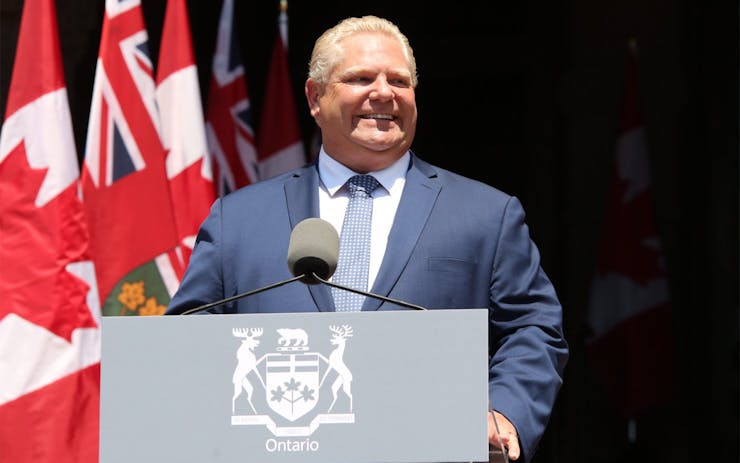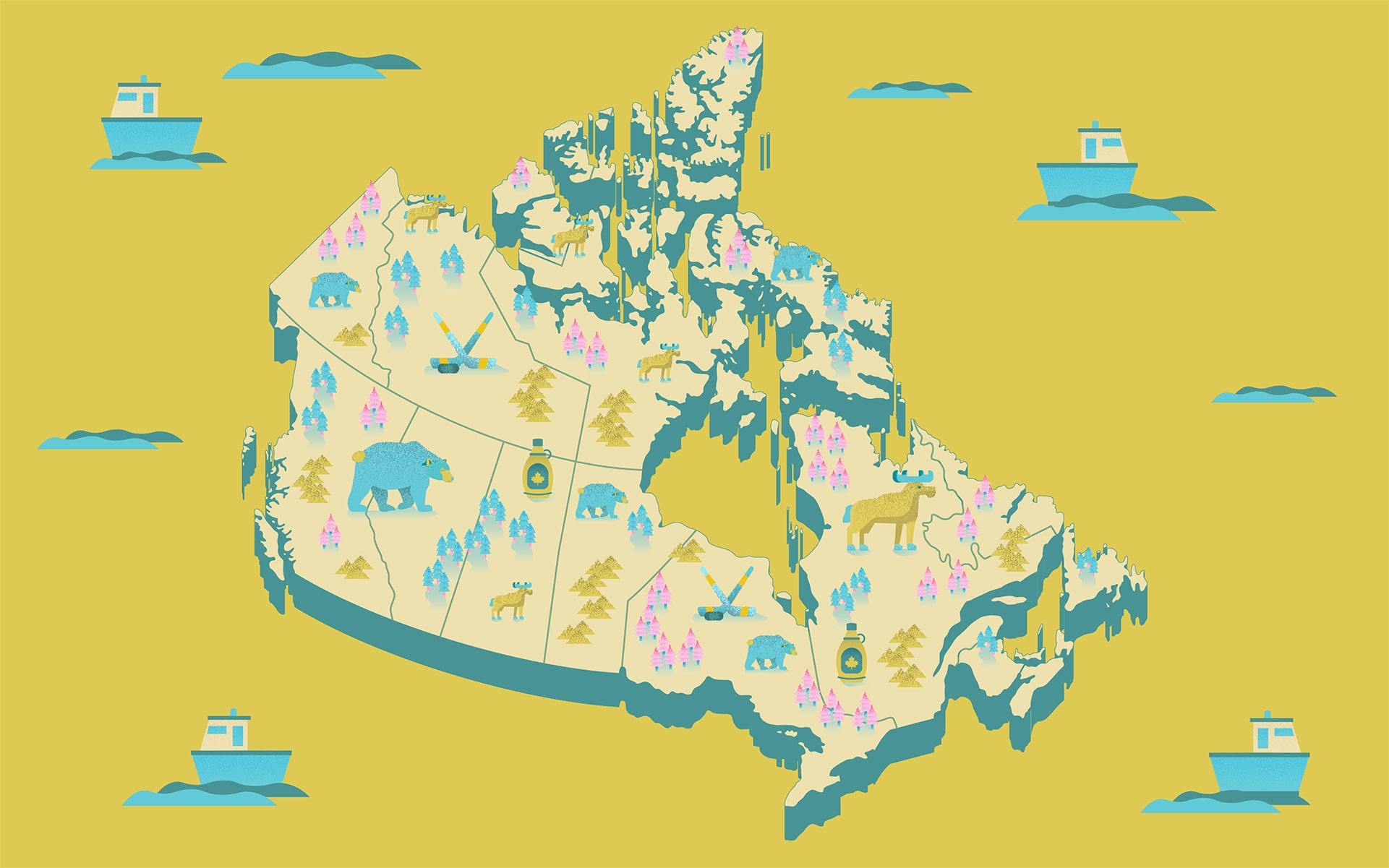After being sworn in as premier of Ontario last week, Progressive Conservative leader Doug Ford addressed cheering supporters outside the provincial legislature in Toronto. “My friends,” he said under the blazing sun, “a new day will dawn in Ontario, a day of prosperity and opportunity, opportunity for all to succeed and prosper.”
Will Ford give cannabis producers the opportunity to move into the retail sector? That remains to be seen—but producers are feeling optimistic.
But will he give cannabis producers the opportunity to move into the retail sector? That remains to be seen—but they are feeling optimistic.
In late 2017, the then-ruling Liberal Party announced plans to regulate cannabis sales through the Ontario Cannabis Retail Corporation (OCRC), a subsidiary of the government-owned Liquor Control Board of Ontario (LCBO). Premier Kathleen Wynne said the government would open 40 stores as soon as recreational cannabis became legal and open at least a hundred more within two years.
Two months before the election, Ford criticized the plan and said he would be open to privatization—allowing recreational cannabis to be sold outside of government-run stores. “I’ve always been open to a fair market, and I let the market dictate,” he said in an interview with CBC Radio. “I don’t like the government controlling anything no matter what it is…”
Those comments caused a bit of a stir. The following day, Wynne said wider retail access to recreational cannabis would upset many Ontarians. “I think that a lot of parents would have concern about cannabis being available beside candy bars in corner stores,” she said. “I think there would be a recklessness to doing what Doug Ford is suggesting.”
Two weeks after he was elected, Ford said he would consult with municipalities, stakeholders, and his caucus before deciding whether to change the province's proposed cannabis plan.
Ford soon softened his stance somewhat and expressed support for LCBO cannabis sales, at least to start. He said little else about cannabis before the election except to say Ontarians had to be “super, super careful” in regulating the market.
Then, two weeks after he was elected, Ford said he would consult with municipalities, stakeholders, and his caucus before deciding whether to change the cannabis plan laid out by his predecessor. He also took a shot at the federal government, saying Ottawa had simply “dumped” the important issues surrounding cannabis onto the provinces.
Although the incoming premier has been noncommittal about his plans for the distribution and sale of cannabis, cannabis producers and the ancillary businesses connected to them seem hopeful about being able to get into the retail market.
“Based on what he said during his campaign, we are assuming it’s likely going to happen,” Jay Wilgar, head of Newstrike Resources, which owns Ontario-based producer Up Cannabis, told Leafly. “We’re preparing for a change in the province’s plan.”
Newstrike has been working closely with the OCRC in preparation for legalization, but Wilgar says there’s a downside to the public retail model: “There is a simplicity to the government model in terms of distribution, but in that system, producers tend to get ground down on price and product offerings.” He said Newstrike would like to get directly involved in the retail space in Ontario.
Some LPs would like to see Ontario set up a system similar to Alberta’s, where cannabis will be sold by private retailers and no one person or group can hold more than 15% of the retail licenses.
Wilgar would like to see the government set up a system similar to the one in Alberta, where cannabis will be sold by private retailers—and no one person or group will be able to hold more than 15% of the retail licenses.
“I think the Ford government will work towards that retail model,” said Wilgar. “That would make a lot of sense, and we would like to be part of it.”
Will Stewart, vice-president of corporate communications for Hiku, which is licensed to produce cannabis through its subsidiary DOJA, told Leafly he would like to see a model similar to the one being established in British Columbia. That province is opening a network of public retail stores and, in urban centres, private stores will be allowed to operate.
Shop highly rated dispensaries near you
Showing you dispensaries near“We think there is a role for private- and public-sector retail,” Stewart said. “In that scenario, the work that has already been done by the Ontario Cannabis Retail Corporation would not go to waste.”
Hiku runs a group of retail shops called Tokyo Smoke, which sell coffee and cannabis paraphernalia. Tokyo Smoke is moving further into the retail space, obtaining the right to open between 20 and 30 retail cannabis stores outside Ontario, in Manitoba and Newfoundland.
Stewart, who has a background as a political lobbyist, said industry stakeholders [DS2] are taking a wait-and-see approach but he said he feels “optimistic about the new government. Wynne made it clear she wanted a government monopoly,” he told Leafly. “But with Ford, there is at least the possibility of private sector getting involved. The door is open at least a crack.”






